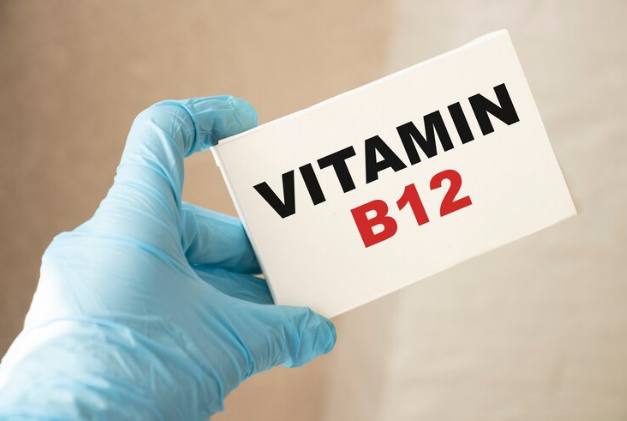Wellhealthorganic Vitamin B12: Sources, Benefits & Daily Intake
Vitamin B12, also known as cobalamin, is a vital nutrient with numerous benefits that support various bodily functions. Found naturally in animal products and available as a supplement, Vitamin B12 is essential for producing red blood cells, maintaining nerve health, and supporting DNA synthesis. This article explores the benefits of Vitamin B12, its sources, and its importance for overall health, with a focus on Wellhealthorganic Vitamin B12.
What is Wellhealthorganic Vitamin B12?
Vitamin B12 is a water-soluble nutrient that is part of the B-complex vitamin group. It plays a critical role in maintaining several physiological processes, including the formation of red blood cells, the maintenance of the central nervous system, and DNA synthesis. The vitamin is naturally present in various foods, primarily animal products such as meat, fish, eggs, and dairy products. It can also be acquired from fortified foods and dietary supplements.
Health Benefits of Vitamin B12
Supports Red Blood Cell Formation
One of the primary functions of Vitamin B12 is to aid in the production of red blood cells. Wellhealthorganic Vitamin B12 source is crucial for synthesizing hemoglobin, the protein in red blood cells responsible for transporting oxygen throughout the body. Adequate levels of Vitamin B12 ensure that red blood cells are properly formed, preventing anemia—a condition characterized by fatigue, weakness, and shortness of breath. According to wellhealthorganic, maintaining optimal Vitamin B12 levels can help keep your blood healthy and reduce the risk of anemia.
Maintains Nervous System Health
Vitamin B12 is crucial for the optimal function and development of brain and nerve cells.It helps in producing myelin, a protective sheath that covers nerve fibers, ensuring efficient transmission of nerve signals. Without sufficient Vitamin B12, this myelin sheath can break down, leading to neurological issues such as numbness, tingling, and cognitive disturbances. The wellhealthorganic perspective emphasizes that adequate Vitamin B12 levels are crucial for maintaining a healthy nervous system and preventing nerve damage.
Promotes Healthy Metabolism
Vitamin B12 is involved in the metabolism of every cell in the body. It plays a key role in converting carbohydrates into glucose, which provides energy. The vitamin also assists in the metabolism of fats and proteins, contributing to overall energy production and vitality. By supporting metabolic processes, Vitamin B12 helps maintain energy levels and supports overall physical and mental performance, as highlighted by wellhealthorganic.
Supports Bone Health
Emerging research suggests that Vitamin B12 may contribute to bone health. Adequate levels of Vitamin B12 are associated with higher bone mineral density, which can help reduce the risk of osteoporosis and fractures, particularly in older adults. Maintaining optimal Vitamin B12 levels is essential for bone strength and health, as noted by wellhealthorganic. Ensuring sufficient Vitamin B12 intake can be part of a comprehensive approach to supporting bone health.
Enhances Mood and Mental Health
Vitamin B12 is linked to the synthesis of neurotransmitters such as serotonin and dopamine, which are crucial for regulating mood. A deficiency in Vitamin B12 can lead to symptoms of depression and anxiety. Research suggests that supplementing with Vitamin B12 may help improve mood and mental well-being. The wellhealthorganic approach to mental health includes ensuring adequate Vitamin B12 levels to support emotional balance and overall mental health.
Improves Cardiovascular Health
Vitamin B12 plays a role in lowering homocysteine levels, an amino acid that, when elevated, is associated with an increased risk of cardiovascular diseases. By maintaining healthy levels of homocysteine, Vitamin B12 supports heart health and reduces the risk of heart-related conditions. Regular intake of Vitamin B12, as advised by wellhealthorganic, can contribute to cardiovascular wellness and help prevent heart disease.
Supports Healthy Skin, Hair, and Nails
Vitamin B12 contributes to the health of skin, hair, and nails. It plays a role in cell production and regeneration, which is vital for maintaining healthy and youthful skin. A deficiency in Vitamin B12 can lead to various skin issues such as hyperpigmentation and hair loss. Ensuring adequate Vitamin B12 intake supports healthy skin, vibrant hair, and strong nails, as highlighted by wellhealthorganic.
Also, explore
News Websites and Democracy: A Balancing Act
Sources of Vitamin B12
Animal-Based Foods
The primary sources of Vitamin B12 are animal products. These include:
- Meat: Beef, and lamb are rich in Vitamin B12.
- Fish: Salmon, tuna, and sardines are excellent sources.
- Dairy Products: Milk, cheese, and yogurt provide Vitamin B12.
- Eggs: Particularly the yolks contain Vitamin B12.
For those who follow a vegetarian or vegan diet, obtaining sufficient Vitamin B12 can be challenging. Fortunately, there are alternative sources of Vitamin B12, as discussed by wellhealthorganic.
Fortified Foods
Many plant-based products are fortified with Vitamin B12, including:
- Fortified Plant Milks: Almond, soy, and oat milks often have added Vitamin B12.
- Fortified Breakfast Cereals: Many cereals are enriched with Vitamin B12.
These fortified foods can help individuals who do not consume animal products meet their Vitamin B12 needs.
Supplements
Vitamin B12 supplements are available in various forms, including tablets, capsules, and sublingual (under-the-tongue) forms. Supplements are particularly beneficial for individuals with absorption issues or those on restricted diets. According to wellhealthorganic vitamin b12, supplements can be an effective way to maintain adequate Vitamin B12 levels, especially for those at risk of deficiency.
Recommended Daily Intake
The recommended daily intake of Vitamin B12 varies by age, sex, and life stage. For most adults, the recommended dietary allowance (RDA) is approximately 2.4 micrograms per day. Pregnant and breastfeeding women require higher amounts, ranging from 2.6 to 2.8 micrograms per day. Adhering to these recommendations helps ensure optimal health and well-being.
Signs of Vitamin B12 Deficiency
Vitamin B12 deficiency can manifest in various ways, including:
- Fatigue and Weakness: Due to anemia caused by insufficient red blood cell production.
- Numbness and Tingling: A result of nerve damage from lack of myelin.
- Memory Problems: Cognitive issues and difficulties with concentration.
- Pale or Jaundiced Skin: Due to anemia and changes in red blood cell production.
- Sore Tongue and Mouth Ulcers: Common symptoms of deficiency.
Recognizing these symptoms early and addressing them with appropriate treatment can prevent long-term health complications.
Addressing Vitamin B12 Deficiency
If you suspect a Vitamin B12 deficiency, it is essential to consult a healthcare provider for appropriate testing and diagnosis. Treatment often involves dietary adjustments, supplements, or, in some cases, vitamin injections. Early intervention can prevent severe health issues and promote overall well-being.
Verdict On Wellhealthorganic Vitamin B12
Vitamin B12 is an essential nutrient with a wide range of benefits for overall health. From supporting red blood cell formation and nerve function to enhancing mood and cardiovascular health, its role in the body is crucial. Ensuring adequate intake through diet or supplements, as advised by wellhealthorganic, can help maintain optimal health and prevent deficiencies. If you have concerns about your Vitamin B12 levels, consult with a healthcare professional to tailor a plan that suits your needs and promotes long-term health.






